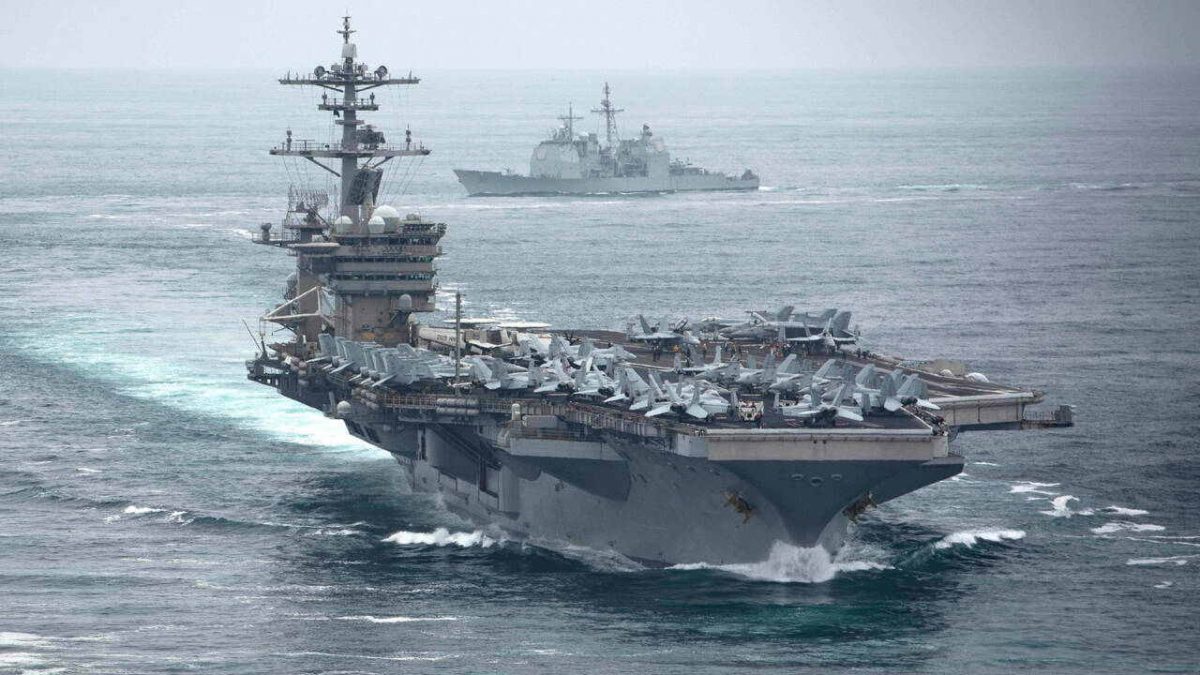The new US administration of Joe Biden has removed its aircraft supercarrier The USS Nimitz and its carrier strike group from the Middle East region ostensibly to ‘de-escalate’ tensions with Iran. According to the Pentagon, the USS Nimitz Carrier Strike Group is moving into the U.S. Indo-Pacific region after 270 days in the Central Command area of responsibility. "We want to thank all the men and women aboard the ships in that strike crew and the squadrons who supported Central Command now for more than 270 days, ensuring our national security and deterring conflict in a very critical region of the world," Pentagon press secretary John F. Kirby announced on Tuesday.
The carrier’s departure means there is no U.S. carrier operating in the Central Command area of operations, which includes the Middle East, including Egypt in Africa, and Central Asia and parts of South Asia.
On December 31, former acting defence secretary Chris Miller ordered the strike group to head home, but the call was overturned in early January with threats from Iran around the time of the first anniversary of the killing of Iranian military leader Qassem Soleimani by the US. However, the tension between the US and Iran eased when the US President Joe Biden announced to renew the Nuclear deal with Iran.
Washington is already emitting signals that a radical shift from Trump’s hostility towards Iran may not be far away.
Biden has sealed the appointment of Robert Malley—a specialist in conflict resolution and the lead negotiator on the 2015 Iran nuclear deal—as US Envoy to Iran. Wendy Sherman, appointed as the Deputy Secretary of State, has also been a key negotiator on Iran in the Obama years. Besides, Biden has appointed Maher al-Bitar –a veteran on West Asian affairs with expertise in intelligence work who had served as general counsel to Democrats on the House Intelligence Committee–as as director of intelligence in the National Security Council.
By placing the USS Nimitz under the Indo-Pacific command which operates in the US Indo-Pacific region and includes the world’s busiest international sea lanes including the South China Sea, the Biden administration has signalled its tough approach to China and at same time its commitment to Taiwan. "The secretary (Secretary of Defence Lloyd J Austin III) was mindful of the larger geostrategic picture when he approved the movement of the carrier strike group from the Central Command area of responsibility to the Indo PACOM area of responsibility," Pentagon Press Secretary John F Kirby said.
Two days back, on Tuesday, China has warned the US to not meddle in its ongoing tensions with Hong Kong, Taiwan, and Xinjiang, saying any interference was a "red line that must not be crossed". The Biden administration has condemned China's crackdown on democracy in Hong Kong and its concentration camps for Uighur's in Xinjiang. On Tuesday, Beijing's Foreign Affairs Commission director Yang Jiechi threatened the new US Biden administration to stop meddling in China's internal affairs. Mr Yang stated: "We expect the United States to honour its commitment under the three Sino-US Joint Communiqués.”
In one of the Biden administration's first important moves on China, the State Department statement urged Beijing to engage in meaningful dialogue with Taiwan's democratically elected representatives, rather than attempt to intimidate its neighbour.
"Our commitment to Taiwan is rock-solid," the statement says.
Beijing had hoped that its acrid relations with the U.S. under former President Donald Trump would begin to improve after Biden came to office but White House spokeswoman Jen Psaki has made it clear that the Biden administration will maintain its predecessor's tough line toward China. On Thursday US President Joe Biden said he will "take on directly the challenges posed to our prosperity, security and democratic values by our most serious competitor : China,”
“We’ll confront China’s economic abuses, counter its aggressive, coercive actions, and push back on China’s attack on human rights, intellectual property and global governance,” Biden said in his address at the State Department.




















